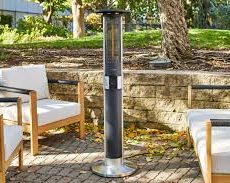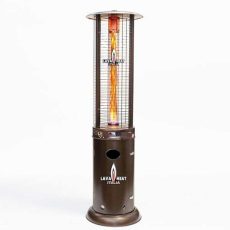Determining whether gas heaters are cheaper to run than electric heaters involves a multifaceted evaluation of different factors. Such as electricity prices, heater efficiency, insulation of the heated space, and the unique models of warmers being compared. Here are a few key points to take into account while evaluating the operating costs of gasoline and electric warmers:
1. Energy Prices
Energy prices are one of the most significant elements affecting the cost of heaters. Gas heaters and strength costs vary by place of use and might vary over the years due to market conditions, local supply and demand, and geopolitical factors. In some areas, herbal gasoline can be inexpensive and consistent with a unit of energy compared to strength, making gas heaters a more powerful option. However, this isn’t universally true, and evaluating electricity costs at your place is essential.
For instance, in regions where herbal gas is considerable and strength is generated from luxurious or imported fuels, gas heaters can provide significant savings. Conversely, electric-powered heaters might be more within your budget in regions with cheap and ample hydroelectric or sun strength. Therefore, checking neighborhood strength charges is an essential first step in determining which kind of heater is less expensive.
2. Efficiency of the gas heaters
The performance of a heater affects how much electricity it consumes to produce warmth. Gas heaters, incredibly modern-day and properly maintained models, commonly have better energy performance rankings than older or much less efficient electric warmers. Higher efficiency means the system converts more energy input into usable heat, reducing operating costs.
For gas heaters, express efficiency as the heater’s Annual Fuel Utilization Efficiency (AFUE), and for electric heaters, as the heater’s coefficient of overall performance (COP). For example, a high-efficiency gas furnace with an AFUE of 95% turns 95% of the fuel energy into heat, losing only 5% as exhaust. Similarly, electric-powered heater pumps, which can have COPs above 3.0, generate three units of heat for every unit of strength eaten up, making them very efficient in certain situations.
3. Heating Needs and Usage Patterns of Gas Heaters
Consider your space’s heating needs and how often the heater will be used. These elements are essential in figuring out cost-effectiveness. Because gas heaters can rapidly reach high heat levels and maintain constant temperatures, they are frequently better suited for continuous usage or heating bigger spaces. They are thus perfect for bigger houses or spaces that need continuous, constant heating.
Conversely, electric heaters could be more suited for smaller areas or sporadic usage. Space heaters, for example, are able to be switched on and off as required and are an effective way to heat a single room or small area. This flexibility can result in lower energy consumption and cost in scenarios with sufficient intermittent heating.
4. Insulation and Air Leakage
The building’s or room’s insulation quality and air leakage may greatly impact heating expenses. Regardless of the fuel source, a well-insulated area with little air leakage will retain heat more efficiently, lessening the strain on the heater and cutting running expenses.
A home with energy-efficient windows, adequate sealing, and enough insulation can get more use out of any heating system. On the other hand, houses with inadequate insulation would lose heat more rapidly, increasing energy expenses and use. Greatly increase the cost-effectiveness of gas and electric heating systems by improving insulation and closing air leaks.
5. Initial Cost and Installation
Initial costs and installation requirements also need to be considered. In general, gas heaters are more expensive up front than electric heaters, particularly when installing them and requiring the addition of gas lines, venting systems, or other infrastructure modifications. Depending on local energy prices and consumption patterns, reduced operational costs could eventually compensate for these hefty upfront expenses.
Electric heaters are generally less expensive up front and need less installation work. They are a more straightforward and less expensive choice for houses without gas connections. Or where retrofitting would be expensive since they often simply need a regular electricity connection.
6. Maintenance Requirements
Gas vs. electric heater cost-effectiveness may also be influenced by maintenance needs. Periodic maintenance on gas heaters, such as burner cleaning, heat exchanger inspections, and gas line checks, may be necessary and result in extra expenses. These maintenance activities are essential for safety and efficiency but add to the total cost of heater ownership.
Electric heaters generally require fewer maintenance needs and may be more cost-effective. Most require minimal upkeep, mainly cleaning filters and ensuring proper operation. This lower maintenance burden can result in lower ongoing costs than gas heaters.
7. Environmental Considerations for gas heaters
A further important consideration is the influence on the environment. Greenhouse gas emissions from burning natural gas contribute to air pollution and climate change. Electric heating from renewable or low-emission sources could be a more ecologically responsible choice if lowering your carbon footprint is a top concern.
Reduce the environmental impact of house heating considerably by using electric heaters powered by renewable energy sources like solar, wind, or hydroelectric power. However, the environmental advantages of electric heating disappear if your power comes predominantly from fossil fuels. And its emissions are then on par with or worse than those of natural gas.
Conclusion
Whether gas heaters are cheaper than electric heaters depends on numerous elements specific to your situation. Considering the local electricity cost of warmers, heater efficiency, heating desires, insulation nice, initial and upkeep expenses, and environmental impact is vital. Conducting a thorough cost analysis and thinking about long-term factors can assist in deciding the most value-powerful. And environmentally friendly heating alternative for your property or business. Making an informed selection requires cautious attention to some of these variables to ensure that your heating desire aligns with your financial and environmental dreams.


